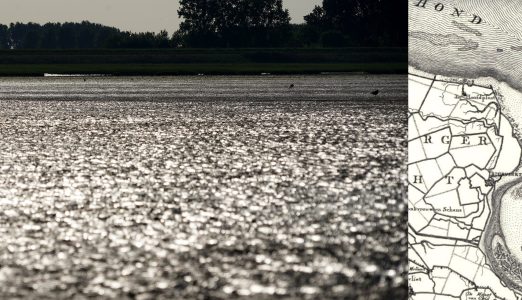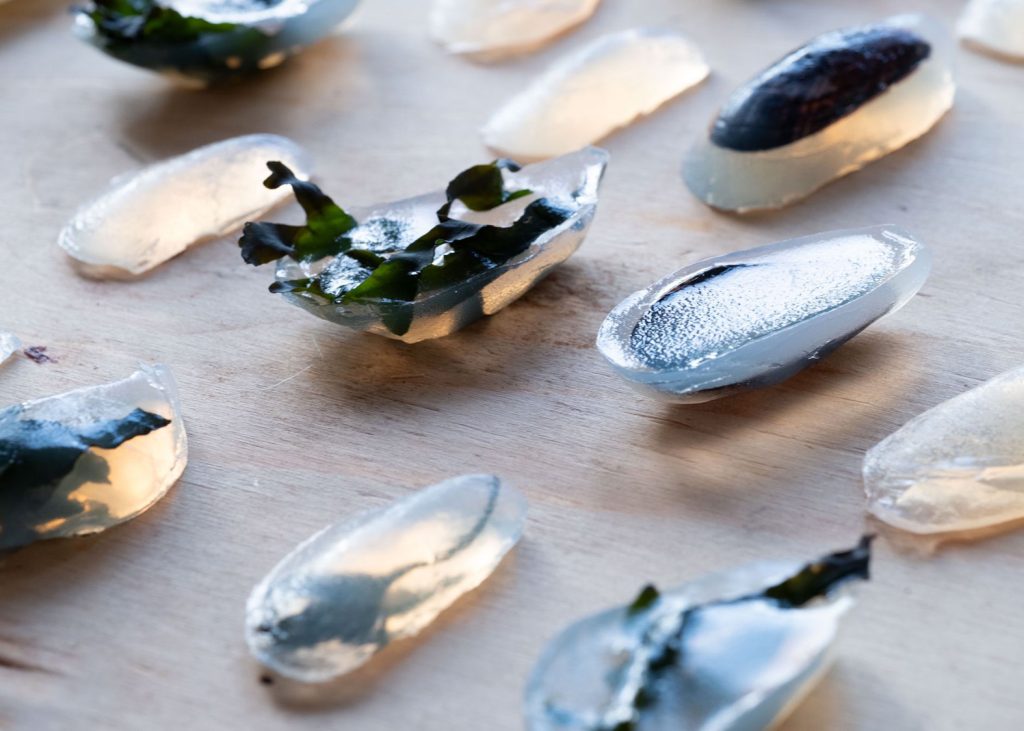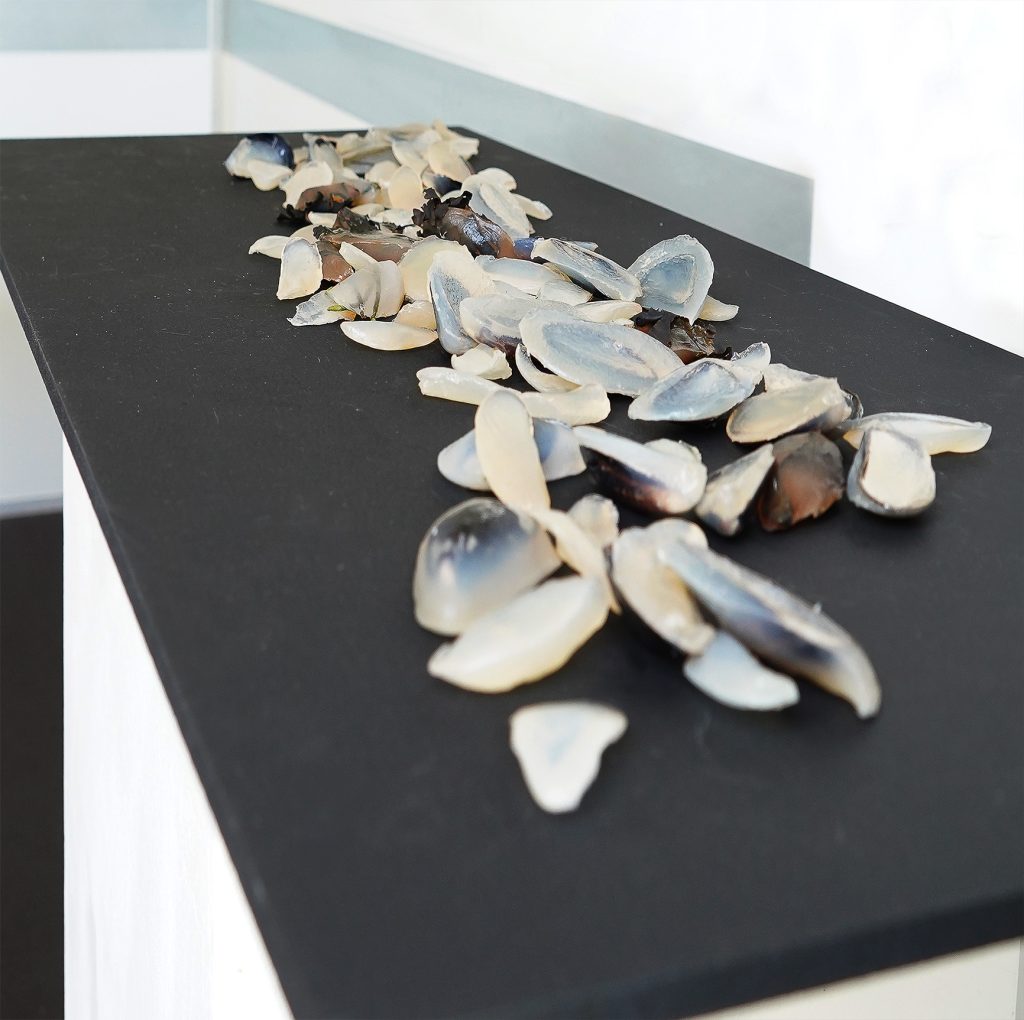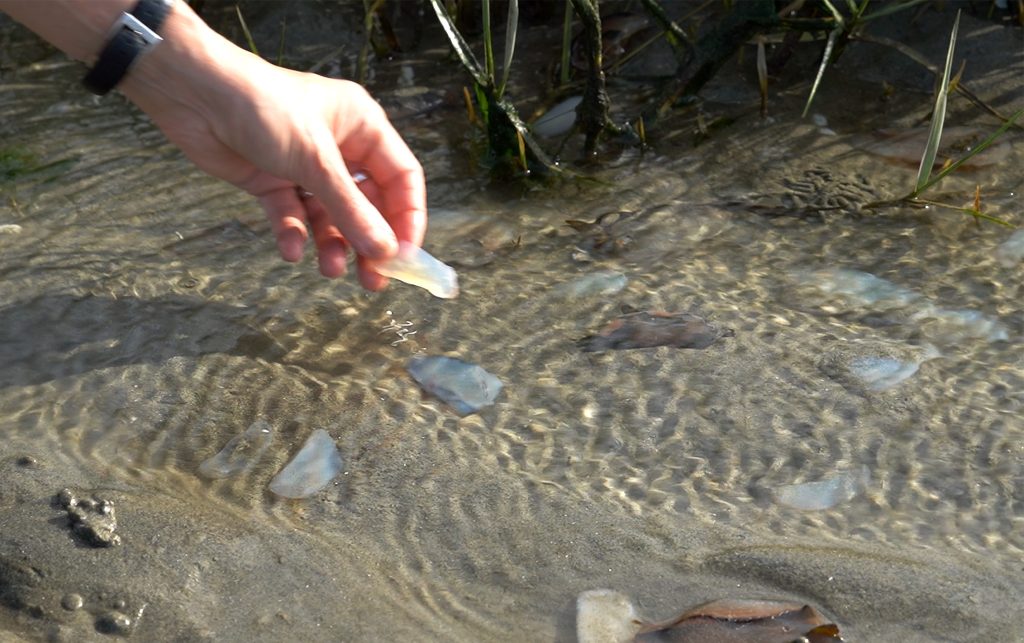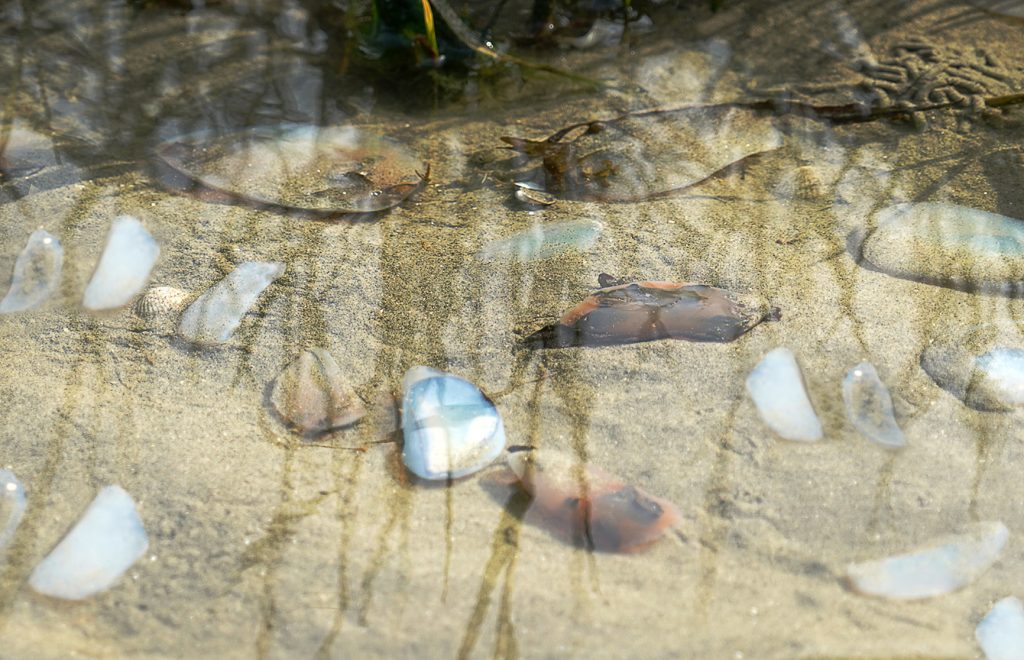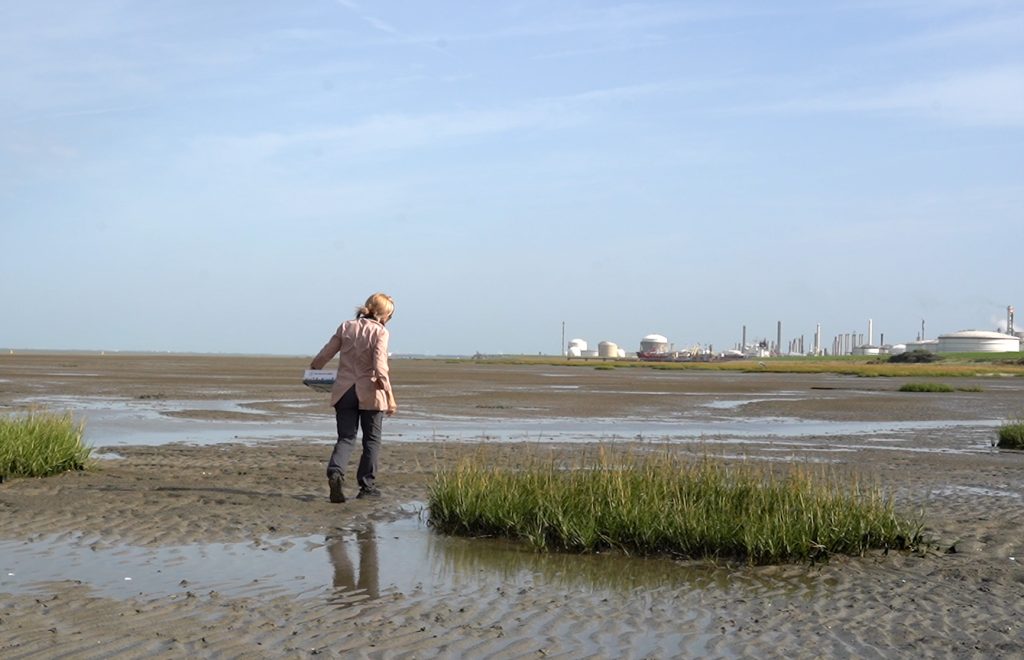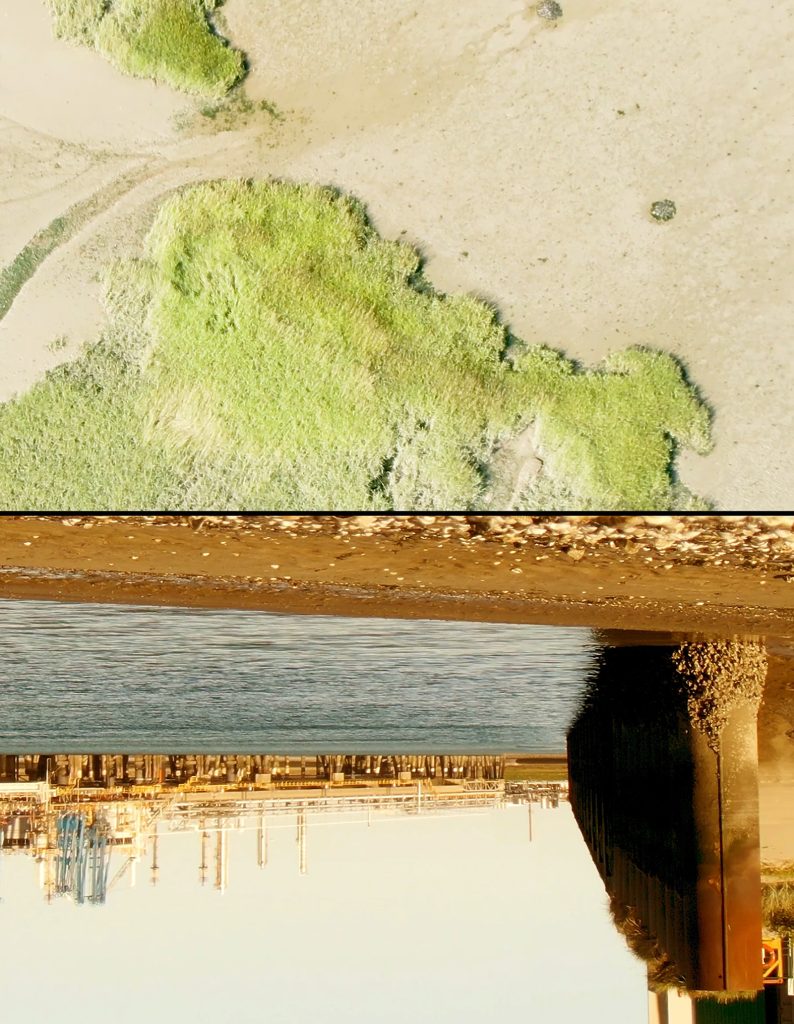
New work commissioned by EEN FABRIEK /A FACTORY / Zeeland to tell a story about a small and non-descript parcel of coastal land; but a site that consolidates a series of land and human concerns from past to future: de Mosselbanken, edging the Weste Scheldt estuary, Zeeland.
A site-led conversation and land based storytelling about a mussel-led past, and about a future extinction.
Part of Een Fabriek #1 experimental interdisciplinary site activation including:
performative lecture artist researcher Martin Howse
audio tour folklorist Marco Evenhuis
Robbert&Frank Frank&Robbert participatory performance
October 2023.
The storytelling is actually not so much about the land but about the loss of the Mosselbanken. Once a saltmarsh where seaweed and bivalves lived, feeding on the nutrients in the salt water way between Antwerp and the North Sea. Where migratory shore birds stopped to feed and local waterfowl nested. Also a site where people historically harvested mussels, in the shallow tidal waters. The saltmarsh was subsequently and incrementally pouldered and claimed from the ocean over a series of infills, with the final section geoengineered into a site for a Dowe Chemical plant, a deepwater harbour and a piece of de novo brownlands, optimistically called the *ValuePark* in the 1970s.
The human act of pulling low lying land up and away from the embrace of the sea, is a Dutch inovation; as is pouldering economically valueless saltmarshes into valuable farmland; in a nation where such intergenerational geoengineering activities has made over 33% of the country’s area. In these anthropogenic lands the Mosselbanken is not unique.
A future extinction
And yet, this specific site speaks speaks of human land based value systems; of the economic exchange of saltmarsh and its mussels, sea-grasses and birds, for jobs and a plastics factory.
Im interested in this site as a propositional future extinction site, speculating on a future free of plastics. A site where a plastics factory is no longer required and goes extinct. A future mussel-dreaming.
The sculptural element of this research consisted of over 100 bioplastic mussel shaped forms, made from seaweed agar based bioplastic. The translucent shapes recall the form and memory of mussels. Some of the forms contained mussel shells and seaweed sources from the site. Together the installation resonated with hydrophone-collected sounds from the intertidal zone and the non-human soundscape memories of the mosselbank. At the end of the exhibition the mussel sculptures were returned to the coast where, being oaf seaweed origin and rapidly biodegradable, they will leave no residue. Bioplastics: Working with artist, Cecilie Fang
Video: Mussels Dream In Seaweed Song. 6:10
Followed by local historic folksong welcoming fishermen. Working with vernacular researcher and folklorist, Marco Evenhuis
Reading: James Bridle, Ways of Being
Listening: Plastisphere: A podcast on plastic pollution in the environment
Thinking: Of extinction applied to factories and other entities; following from previous work considering ‘cursing’ as an act of power reclamation
